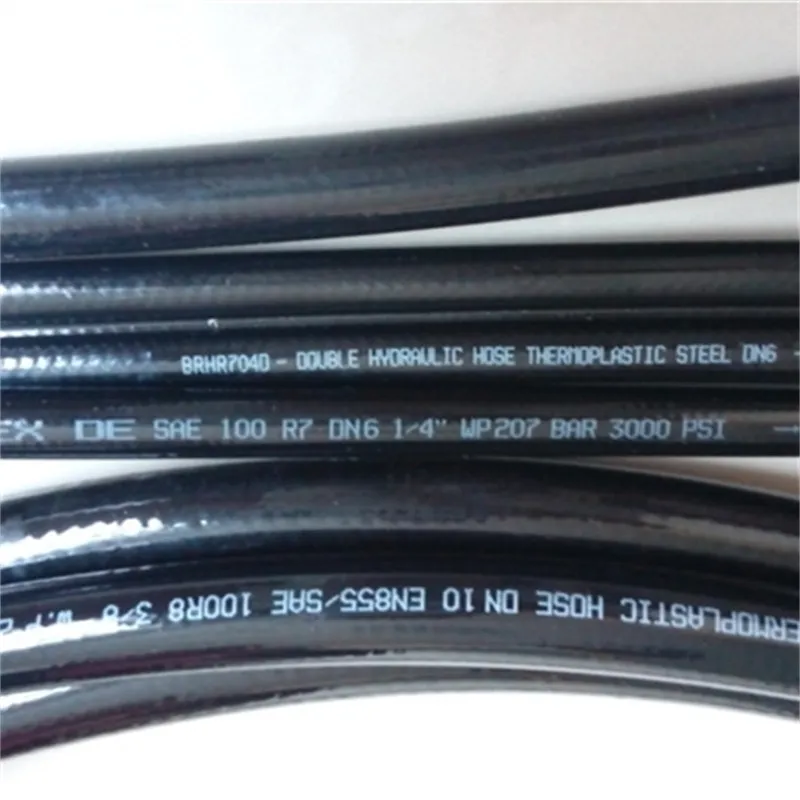Jul . 28, 2024 09:39 Back to list
SS316 PTFE Hose Factory Certification CE Standards for Quality and Performance Assurance in Manufacturing
Understanding CE Certification for SS316 R14 PTFE Hoses
In today's industrial landscape, equipment and materials must adhere to rigorous standards to ensure safety, durability, and reliability. One such standard that has garnered significant attention is the CE certification, especially concerning SS316 R14 PTFE hoses. This article delves into what CE certification means, the characteristics of SS316 R14 PTFE hoses, and the role of factories in producing these components.
What is CE Certification?
CE certification is a mark that indicates a product meets certain European safety, health, and environmental protection requirements. It is mandatory for products sold within the European Economic Area (EEA). CE marking is not a quality mark; rather, it signifies compliance with EU directives in terms of product safety, performance, and environmental impact. Companies that manufacture or import products must ensure that their goods are tested, certified, and conform to applicable EU regulations.
Characteristics of SS316 R14 PTFE Hoses
SS316 R14 PTFE (Polytetrafluoroethylene) hoses are highly specialized components used in various industries, including chemical, pharmaceutical, and food processing. These hoses are designed to withstand extreme temperatures and corrosive substances, making them indispensable in applications where traditional materials would fail.
1. Material Properties SS316 refers to a type of stainless steel that contains molybdenum, which enhances its corrosion resistance compared to standard stainless steel. This makes it particularly suited for applications involving aggressive chemicals or continuous exposure to corrosive environments.
2. PTFE Lining The R14 designation indicates that the inner lining of the hose is made from PTFE, a plastic known for its non-reactive and non-stick properties. This allows SS316 R14 PTFE hoses to convey aggressive chemicals without the risk of degradation or contamination.
3. Temperature and Pressure Resistance These hoses are capable of handling a wide range of temperatures, from cryogenic levels to high heat, and can withstand high pressure, making them suitable for demanding applications.
ce certification ss316 r14 ptfe hose factories

4. Flexibility and Durability Despite their robust construction, SS316 R14 PTFE hoses retain flexibility, allowing for easier installation and maintenance. Their durability ensures a long service life and reduces the need for frequent replacements.
The Role of Factories in Production
Factories that manufacture CE-certified SS316 R14 PTFE hoses must adhere to stringent quality control processes to ensure that their products meet safety and performance regulations. This includes
1. Material Sourcing Factories must source high-quality SS316 stainless steel and PTFE from reputable suppliers. The integrity of these materials directly affects the performance of the finished product.
2. Manufacturing Standards The production process often involves advanced technologies to ensure precision and reliability. Factories need to implement automated systems and rigorous testing protocols during manufacturing to achieve the required quality standards.
3. Certification Processes To achieve CE certification, manufacturers must undergo a thorough assessment by notified bodies that evaluate compliance with relevant EU directives. This process often includes product testing, safety assessments, and quality management audits.
4. Continuous Improvement Factories must embrace continuous improvement practices to adapt to changing regulations and technological advancements. This includes staying updated with industry standards and best practices to maintain their CE certification status.
Conclusion
In conclusion, CE certification is crucial for SS316 R14 PTFE hoses, reflecting their compliance with European safety and quality standards. Factories play a key role in ensuring that these hoses are manufactured to meet rigorous specifications, combining the durability of stainless steel with the versatility of PTFE. As industries across the globe continue to evolve, the demand for certified components like the SS316 R14 PTFE hose will only increase, emphasizing the importance of quality manufacturing practices. Understanding the intricacies of CE certification and the characteristics of these hoses contributes to making informed decisions in industrial applications.
-
Best Four Steel Wire Spiral Hose Hydraulic R12 – Durable High-Pressure Hose Manufacturer
NewsJul.08,2025
-
High-Quality 1/4 Hydraulic Hose – Soft, Flexible & Durable Rubber Hoses for Industrial Use
NewsJul.08,2025
-
1 1 2 Inch Hydraulic Flexible Hose - Durable, Reliable, High-Pressure Solutions
NewsJul.07,2025
-
High-Quality 1 2 Rubber Hose - Durable, Flexible Hydraulic Solutions
NewsJul.07,2025
-
Discover SAE Hydraulic Hose Types - High Quality & Durable Hoses from Leading Factory Supplier
NewsJul.06,2025
-
High Pressure Wire Hydraulic Rubber Hose Supplier Durable & Reliable 1SN Hose Solutions
NewsJul.06,2025
